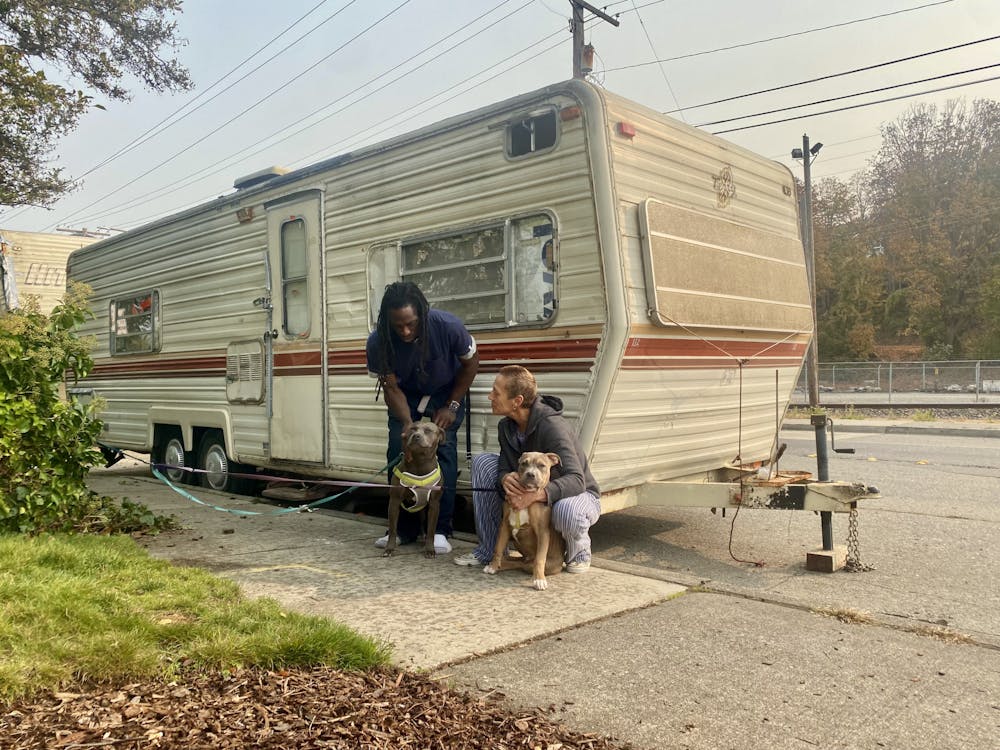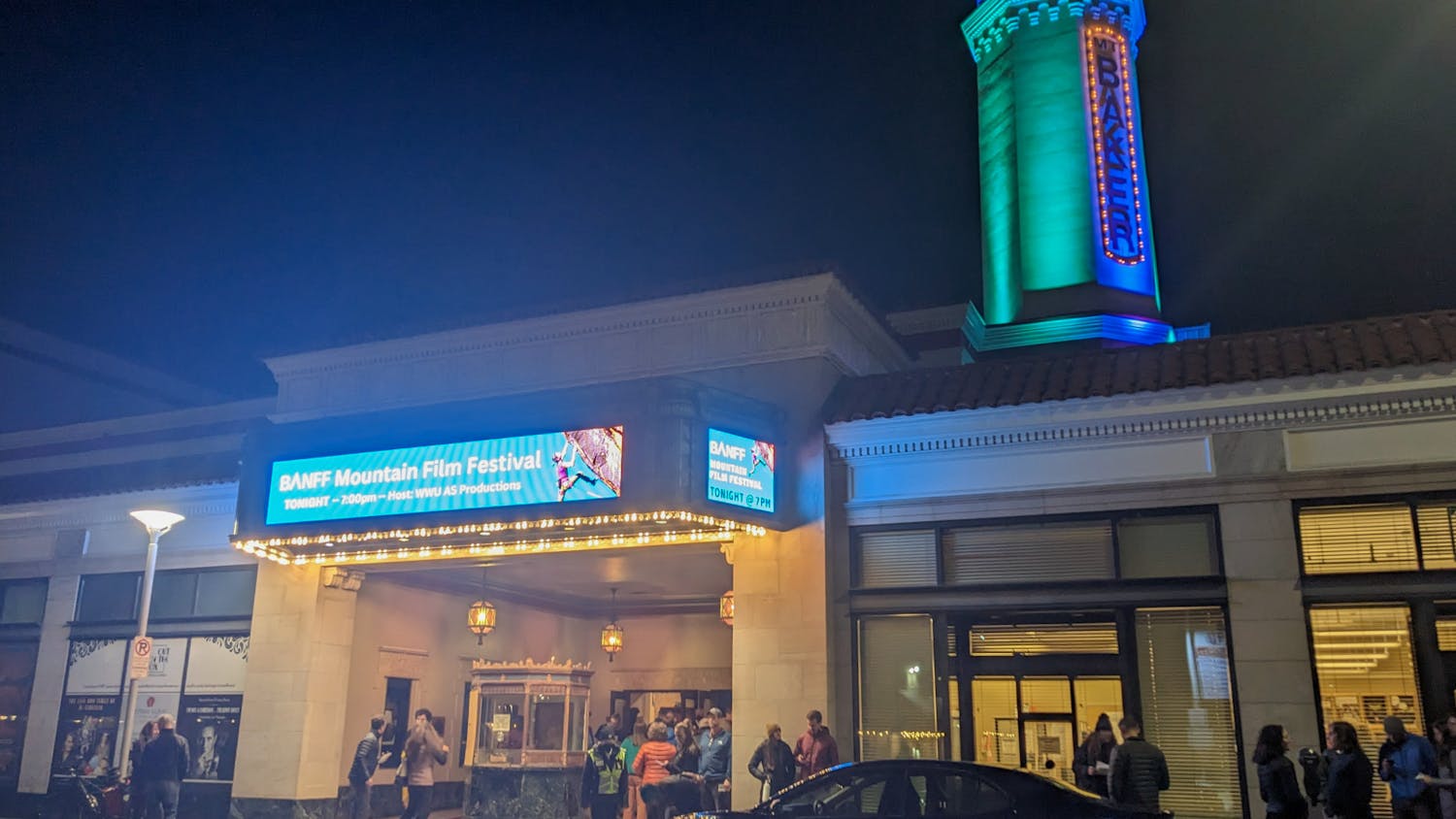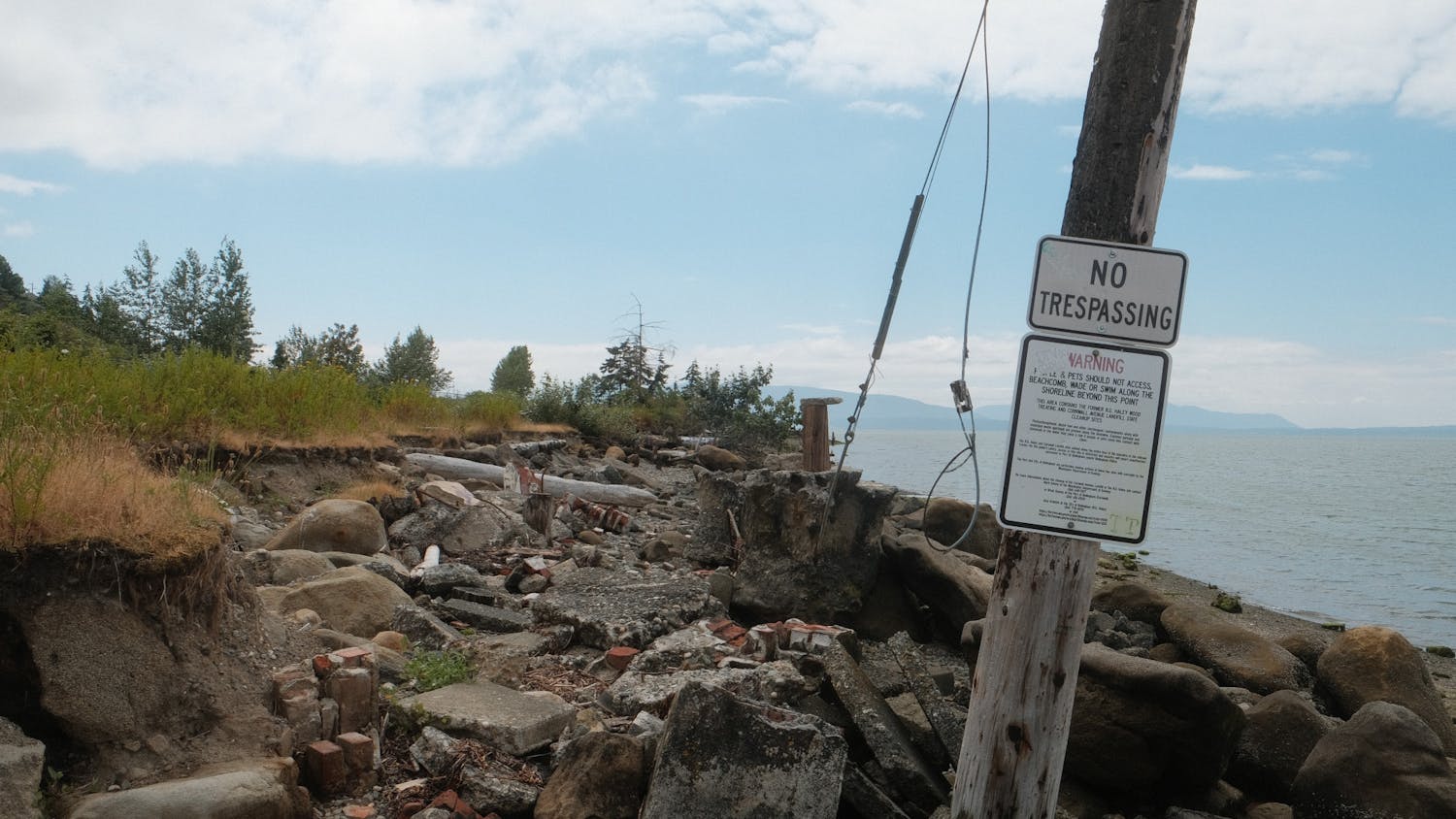Correction: A previous version of this story misidentified the Bellingham City Council vote … This story has been updated for clarity and to correct the error.
Bellingham City Council will hold a vote on Monday, Oct. 24 to vote on whether to remove public parking on several streets to install bike lanes. The upcoming decision comes as a result of the Bicycle Master Plan, which the Bellingham City Council established in 2014 to create a more bike-friendly city.
The city council will vote on whether to install bike lanes on all, some or none of the proposed roads. Removal of parking and the construction of bike lanes would begin early next year.
“[We are trying to] encourage people to get exercise, to use their cars less and get on their bikes,” Councilmember Dan Hammill said.
By moving away from a dependence on cars and biking more instead, Hammill said that adding more bike lanes also contributes to the city’s larger climate and carbon emission goals.
One of the proposed bike routes is on Cornwall Avenue between Laurel and Pine Streets near the Bellingham waterfront. Hammill said installing bike lanes here would be just one small piece of the larger plan to redevelop and add basic infrastructure to the area.
A majority of the parking spaces on Cornwall Avenue are currently occupied by houseless community members who use it to park their RVs and campers.
“It’s hard to get investors [for the development of the waterfront] when you see what’s happening down on that street,” Councilmember Lisa Anderson said.
The removal of parking on Cornwall Avenue would likely displace people to other parts of the city, said Director of Whatcom Homeless Service Center Teri Bryant.
Whatcom Homeless Service Center performs outreach with those experiencing houselessness to connect them with housing opportunities and other programs that may help them. The organization has worked directly with community members who live on Cornwall Avenue.
Councilmember Hammill said that those who live in their vehicles on Cornwall Avenue should instead take advantage of resources like the Lighthouse Mission or Basecamp, but Bryant said it can be difficult to convince those who have their own RV or camper trailer to give that up to live in a shelter.
Bryant said that after learning of the upcoming city council vote to potentially remove parking on Cornwall, she wondered if those who rely on the street to park their RVs and trailers were even aware of it.
“I saw that the [Bellingham City Council’s] methods of engaging the community were to get on the internet, make a phone call, or attend a meeting,” Bryant said. “But not all the folks down there [on Cornwall] have access to that.”
Darlene Daniels, who lives in her camper that she parks on Cornwall Avenue, was unaware of the upcoming decision on whether to remove parking in the area.
Daniels has parked her camper on Cornwall Avenue for the last six months and has experienced houselessness for the last year and a half, ever since being priced out of Bellingham’s rental market. Daniels has been on the waitlist to access affordable housing for the past year, but she’s had to live in her camper in the meantime.
“If you look at the price of rent and the housing market before the pandemic, why did it triple during a pandemic?” Daniels said. “So what are they saying? They’re saying if you can’t afford any of these things then go away.”
For Daniels and her partner, Atiba Fleming, living in their camper is the option where they feel the safest.
“Most of us can’t even stay at Basecamp, that place is full up to the brim,” Fleming said. “This is all we got. What else is there? Where can we go?”
Daniels and Fleming said that for those like themselves who experience PTSD and anxiety, it’s difficult to stay in overcrowded shelters and they’re left with few options while waiting to be placed into affordable housing.
The Bellingham City Council will vote to address the potential installation of bike lanes on Cornwall Avenue and other streets will occur on Oct. 24 at 10:30 a.m. at Bellingham City Hall. Community members are encouraged to attend.
Nina Walsh (she/her) is a city news reporter for The Front. She studies political science and journalism.
You can contact her at ninawalsh.thefront@gmail.com.






